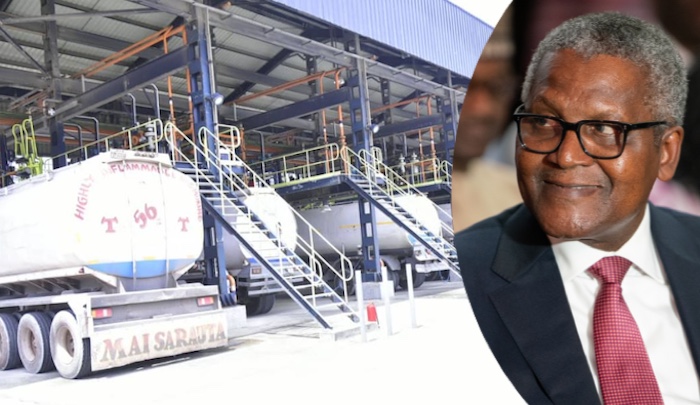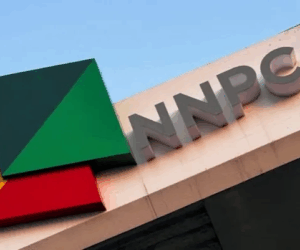The Dangote Petroleum Refinery has justified the disengagement of hundreds of its employees, attributing to an ongoing reorganisation within the facility.
The Dangote refinery also stated that more than 3,000 Nigerians continue to work actively at the 650,000 barrels per day facility despite ongoing reorganisation process aimed at strengthening operations and addressing repeated acts of sabotage.
This comes as oil workers under the aegis of the Petroleum and Natural Gas Senior Staff Association of Nigeria (PENGASSAN) condemned the refinery’s action as anti-labour practice, alleging that the company dismissed over 800 Nigerians and replaced them with over 2,000 Indians, majorly without immigration documents.
Also, Human rights lawyer and Senior Advocate of Nigeria, Mr. Femi Falana, who commented on the matter, slammed the agreement reached between the federal government, the the Nigeria Union of Petroleum and Natural Gas Workers (NUPENG), and the management of Dangote Refinery and Petrochemicals over staff unionisation, insisting that the deal contradicts existing labour laws.
The House of Representatives Committee on Downstream sector also has waded into the faceoff between Dangote Refinery and NUPENG which is threatening to disrupt supply of refined products with a view to resolving it.
The management of Dangote Group had in a letter on Thursday, September 25, 2025 signed by the Chief General Manager, Human Asset Management, Dangote Group, Femi Adekunle, announced the disengagement of the staff in what it profiled “a total reorganisation.”
Adekunle said the total reorganisation of the refinery followed multiple cases of reported sabotage across refinery units that posed major safety risks.
According to him, the management was left with no choice but to carry out a total reorganisation of the refinery, resulting in the disengagement of the affected staff, effective Thursday, September 25, 2025.
He said the employees were told to give all company property to their line managers and obtain an exit clearance, with the specific date for the process to be communicated later.
“The Finance Department, by a copy of this letter, is advised to compute all your benefits and entitlements in line with your terms of employment and conditions of service and pay the amount due to you (less all indebtedness), subject to the condition that you have obtained the exit clearance certificate as mentioned above,” Adekunle stated.
However, in a statement issued on Friday, Dangote Group said the reorganisation exercise was not arbitrary, and that it has become necessary to safeguard the refinery from repeated acts of sabotage that have raised safety concerns and affected operational efficiency.
“Dangote Petroleum Refinery wishes to clarify recent reports concerning the ongoing reorganisation within its facility.
This exercise is not arbitrary. It has become necessary to safeguard the refinery from repeated acts of sabotage that have raised safety concerns and affected operational efficiency.
“The foregoing decision was taken in the best interest of the Refinery as result of intermittent cases of sabotage in the various units of the Refinery with dire consequences on human life and related safety concerns.
“We remain vigilant to our internal systems and vulnerabilities to ensure the long-term stability of this strategic national asset. It is imperative to protect the refinery for the benefit of Nigerians, our partners across Africa, and the thousands of people whose livelihoods depend on it,” Dangote Group said.
The company added that over 3,000 Nigerians continue to work actively in the Petroleum Refinery, at presently.
The group said only a small number of staff were affected as it continues to recruit Nigerian talent through their various graduate trainee programmes and experienced hire recruitment process.
“We recognise and uphold internationally accepted labour principles, including the right of every worker to freely decide whether or not to join a union. Our commitment to workers’ rights is unwavering.
“The Dangote Petroleum Refinery exists to serve Nigerians, to strengthen Africa’s energy independence, and to create decent, sustainable jobs. We will continue to work in partnership with our employees, regulators, and stakeholders to uphold the highest standards of safety, transparency, and accountability,” the company added.
But reacting to the development, PENGASSAN in a statement by its General Secretary, Lumumba Okugbawa, said it expressed its profound outrage regarding the recent anti-labour practices perpetuated by Dangote Refinery.
“We are deeply saddened to report the unjust termination of over 800 Nigerian workers, whose dedication and service have been integral to the operations of this plant. Instead of valuing and retaining this workforce, Management has chosen to replace these qualified Nigerians with over 2,000 Indian workers, many of whom lack valid immigration documentation,” PENGASSAN said.
It said the move not only undermines the livelihoods of the Nigerian citizens but also raises serious concerns about the integrity of labour practices and compliance with the Labour Act of Nigeria.
Under Section 7 of the Labour Act, which prohibits discrimination and ensures the right to fair treatment in the workplace, the union said the actions of Dangote Refinery were glaringly in violation of the country’s labour laws.
It said the dismissal of such a significant number of Nigerian workers without due consultation or any transparent justification contravenes the legal rights granted to all employees in Nigeria.
“Furthermore, we will not tolerate this blatant disregard for the rights of Nigerian workers, particularly in light of the existing provisions under the Trade Union Act, which enshrines the right of workers to organise and join trade unions. The recent organisation of these workers as members of PENGASSAN underscores their collective power and right to protection under the law.
“We emphasise that such actions illustrate a troubling trend towards the marginalisation of Nigerian workers in favour of foreign labour, which we cannot, and will not, tolerate. The sacrifice and talents of our workforce deserve respect, and we demand accountability from employers who possess a social responsibility to the communities they operate in.
“Furthermore, we would be remiss to overlook the broader implications of Dangote Group’s capitalistic pursuits beyond the confines of the refinery sector. Instances of exploitative practices have been reported in various sectors where the company maintains significant business interests. The relentless pursuit of profit at the expense of local talent, ethical employment practices, and community welfare is unacceptable,” PENGASSAN stated.
PENGASSAN therefore urged the management of the Dangote Refinery to recall all terminated Nigerian workers, warning that failure to comply will leave them with no option but to commence exploring all sections of the Nigerian Constitution and the relevant labour laws.
“We stand resolute in our commitment to uphold the rights of Nigerian workers and will take all necessary legal actions open to us as an Association to ensure that they are afforded the dignity and respect they deserve.
“We have scheduled an emergency National Executive Council (NEC) meeting to direct the Association on the way forward. We call on all Nigerians therefore to support this cause and to stand against the exploitation of our workforce by capitalists who seek to undermine our national priorities for their profit. This slave labour of our brothers and sisters must not be tolerated or supported, as injury to one is injury to all,” it added.
Meanwhile, the House of Representatives Committee on Downstream sector have summoned the parties to appear before them at a date to be determined to make representations on the disputes so that they could be resolved.
The Committee also disclosed that they were pressing ahead with the probe of the Turn Around Maintenance of refineries in the country and circumstances surrounding the shutdown of Port Harcourt refinery which was claimed to have started operations.
They disclosed that they had received memoranda from workers and stakeholders on the TAM of the refineries and why after huge expenditure, the facilities were not working and will soon come out with their report.
The retreat disclosed that they had deliberated on issues surounding the supply of feedstock to local refineries to ensure availability of products
According to them, the call for the dissolution of the Nigerian Midstream, Downstream Regulatory Authority should be Discountenanced but instead, passed a vote of confidence on their activities
Chairman of the Committee, Ikenga Ugochinyere, after a three-day retreat in Lagos to address myriad issues in the downstream sector of the oil and gas, vowed to ensure resolution of all issues militating against smooth running of the downstream sector of the country that could affect effective operations.
According to him, by the time they dialogue with all sides, it would be easier to come to a middle point and resolve all knotty issues.
Other issues he said they had deliberated upon were about the amendment of the Petroleum Industry Act with a view to attracting requisite investments into the country for maximum gains as globally obtainable.
The Committee confirmed that it has officially commenced re-investigation into the NNPC Ltd. acquisition of OVH Energy Marketing’s downstream assets and refinery upgrade, which followed a direct order from the House for the reinvestigation of the matter after the first report was turned down.
Ugochinyere speaking on the resolution reached by members after the special committee meeting, said the investigation is distinct from the previous inquiry carried out by the former committee
He recalled that although that committee submitted its report, the House rejected it on the grounds that some critical facts were not reflected.
He stated that as they have commenced the investigation and the general public are invited to make their input before the lawmakers presents their recommendations on the floor of the house.
He said those with information and submissions should submit it to the clerk of the downstream committee
He explained that one of the major causes of delay was the failure of certain stakeholders to submit vital documents, but the committee has resolved to move forward with or without those submissions and complete the assignment as mandated by the House.
The lawmaker assured that any individuals found to have acted improperly—either through direct wrongdoing or failure in oversight—will be identified, and appropriate recommendations will be made in the best interest of the nation.
Ugochinyere said, “the investigation is distinct from the previous inquiry carried out. The House, therefore, mandated the Downstream Committee to undertake a fresh investigation—with a clear directive to uncover what truly transpired in the OVH acquisition process.
“This includes examining the funds paid, details of the acquisition agreement, the assets involved, and the circumstances in which former OVH managers were reported to have formed a new company that later acquired OVH itself. Shockingly, those same individuals are also alleged to have assumed leadership roles within NNPC Retail, raising serious concerns about the integrity and transparency of the entire transaction.
“The committee has now begun this re-investigation in earnest and held a special committee meeting to deliberate on the matter. One of the key resolutions at that meeting was the timely completion of the investigation, which has been long overdue. Pressure from retail staff, industry stakeholders, and members of the public has mounted, questioning the delay and demanding accountability.
“One of the major causes of delay was the failure of certain stakeholders to submit vital documents. However, the committee has now resolved to move forward with or without those submissions and complete the assignment as mandated by the House. As part of the parliamentary process, the investigation must be concluded and a detailed report submitted to the House for action.
“This investigation is critical—not just to address the numerous unanswered questions and alleged irregularities surrounding the OVH acquisition—but also to allow the new leadership at NNPC Retail to focus fully on their ongoing reforms without distraction. Laying these matters to rest is essential for restoring public trust and ensuring that the reforms are not undermined by past controversies.”
Human rights lawyer and Senior Advocate of Nigeria, SAN, Falana voiced out while presenting a paper titled ‘Automatic Membership of Trade Unions for Workers’ at a national webinar on ‘Abuse of Market Dominance and Unfair Labour Practices’ organised by the Federal Competition and Consumer Protection Commission, FCCPC, in collaboration with the Faculty of Law, University of Lagos.
The webinar was convened in the wake of a strike action recently embarked upon by NUPENG, following allegations that Dangote Refinery compelled newly recruited drivers to sign undertakings not to join any existing oil and gas union.
The strike was later suspended after the State Security Service brokered a truce.
According to the resolution, unionisation would be allowed “for employees who are willing to unionise” within two weeks, and the company would not create a rival union.
But Falana, in his paper, argued that this arrangement was inconsistent with the Trade Union Act.
“As far as the law is concerned, employees of Dangote Refinery and Petrochemicals are deemed to be members of NUPENG. The question of allowing only those willing to unionise to do so within two weeks is completely at variance with the Trade Union Act,” he said.
Falana cited multiple judicial authorities, including Nestoil v NUPENG (2012) and Eyiaromi Oladele v Attorney General, Lagos State (2017), to establish that junior workers are presumed to be automatic members of trade unions unless they formally opt out in writing. Senior staff, however, must expressly opt in.
He further maintained that employers lack the legal authority to interfere in the internal affairs of trade unions or determine membership procedures.
He referenced past rulings of the National Industrial Court and the Court of Appeal affirming that once a trade union is duly registered, employers are duty-bound to recognise it, allow unrestrained access to workers, and remit check-off dues.
Ahamefula Ogbu, Peter Uzoho, Sunday Ehigiator, Chuks Okocha and Onyebuchi Ezigbo
Follow us on:








